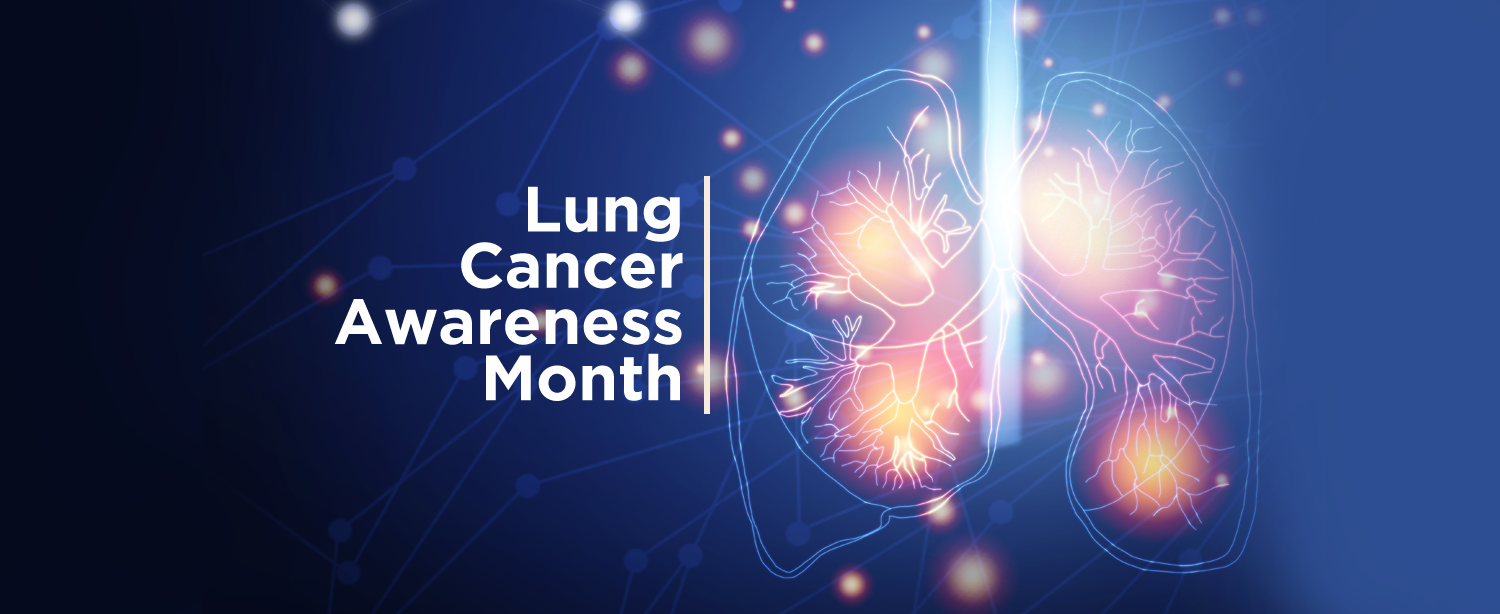Lung cancer is the result of damage to normal cells in the lung. The body programs cells to die at a certain stage in their life cycle to avoid overgrowth. Cancer overrides this instruction, causing cells to grow and multiply when they should not. In lung cancer, this pattern of cell overgrowth occurs in the lungs, which are vital organs for breathing and gas exchange. While anyone can develop lung cancer, cigarette smoking, and exposure to pollution highly increases the risk of developing lung cancer.
Around 50 % of Indians being diagnosed with lung cancer are non-smokers. Air pollution both outdoor and indoor – that includes coal and biomass burning is linked to rising lung cancer cases among non-smokers in India. Lack of awareness, delayed diagnosis, and unavailability of specialist care is the leading cause of lung cancer deaths in India. Most lung cancer cases in India are detected at advanced stages where chances of survival are grim.
Symptoms of Lung Cancer
Lung cancer symptoms may take years to develop, and often there are no symptoms at all until the later stages of the disease. The early symptoms of lung cancer are often mistaken and ignored. These include:
- Coughing — A persistent cough that lasts more than two weeks, or coughing up blood
- Chest infection — Infections, like bronchitis or pneumonia
- Trouble breathing — Shortness of breath or wheezing
- Chest discomfort — Chest pain or sudden and severe discomfort
- Loss of appetite — Many illnesses, including cancer, cause changes in appetite
- Weight loss — If you are losing weight for no known reason, inform your doctor
- Fatigue — Excessive tiredness or weakness is a common sign of cancer
Late signs and symptoms of lung cancer:
- Neck and facial swelling
- Aching bones or joints
- Headaches and dizziness
- Lumps in the neck
- Pain and swelling around the chest
If you have any of the above symptoms or if you are at high risk for developing lung cancer, consult a cancer specialist. Early diagnosis of lung cancer can be lifesaving and offers best chances of survival.
Risk factors of Lung Cancer
Research has found several risk factors that may increase your chances of getting lung cancer. These include:
- Smoking – Cigarette smoking is the number one risk factor for lung cancer. Tobacco smoke is a toxic mix of more than 7,000 chemicals out of which at least 70 are known to cause cancer. People who smoke cigarettes are 15 to 30 times more likely to get lung cancer. Second-hand smoke is equally harmful and may also lead to lung cancer.
- Chemical exposure – Radon is a naturally occurring gas that comes from rocks and dirt and can get trapped in houses and buildings. It cannot be seen, tasted, or smelled however it is may cause lung cancer.
- Other Substances – Certain occupational exposure to chemicals like asbestos, arsenic, some forms of silica and chromium may harm your lungs and increase the risk of getting lung cancer.
- Family history – Your risk of lung cancer may be higher if your parents, brothers or sisters, or children have had lung cancer.
Tips for healthy lungs
Here are a few health tips to follow to keep your lungs healthy and strong:
- Quit smoking and avoid second-hand smoke.
- Have a healthy diet that is high in fibre and includes at least five portions of fruits and vegetables, and has plenty of whole grains.
- Exercise regularly and practice breathing techniques to strengthen your lungs.
- Follow health and safety guidelines in your workplace and avoid carcinogens.
- Laugh often as it helps replenish the lungs.
Lung Cancer care at Kokilaben Dhirubhai Ambani Hospital
Are you showing any symptoms of lung cancer? Meet our highly trained and experienced oncologists for an expert opinion and world-class treatment. Our Centre for Cancer is equipped with high-end technologies that provide excellent outcomes. 50 per cent of surgeries for lung cancer at Kokilaben Hospital are done using Video Assisted Thorocoscopic Surgery (VATS). This is a keyhole surgery that reduces postoperative pain, avoids scars, reduces hospital stay, and helps in fast recovery.
Our Lung cancer experts use state-of-the-art technology such as:
- Video Assisted Thoracoscopic Surgery for lung resection aiding early recovery
- Robot-Assisted Thoracoscopic Surgery for early cancer
- Lung Sparing surgery (including Sleeve Lobectomy)
- Mediastonscopy for staging
- Endobronchial Ultrasonography (EBUS)
- Stereotactic Body Radiation Therapy (SBRT)
If you or a loved one need help for diagnosis, or treatment of lung cancer, consult specialist at our Centre for Cancer. Please find below the link for our website:
https://www.kokilabenhospital.com/departments/centresofexcellence/centrefor_cancer/lungcancer.html


